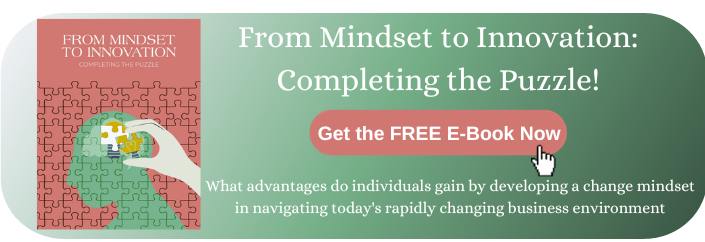Changing Mindset: A Bumpy Road
Our mindset includes everything that influences what you do, and since you don't understand what it is, it seems impossible to change any of these things.
But these are habits. Your thoughts, feelings, and beliefs are all really just habits that you have repeated enough times that they have become encoded into your DNA and your cells.
So how are habits formed?
We begin thinking from a young age, and once we establish a pattern, it becomes even simpler to maintain. As a result, we continue to think and feel the same way until we eventually have tens of thousands or hundreds of thousands of our own personal thoughts - or emotional wagons traveling down this trail.
We have carved out these deep ruts in our personalities, emotions, thoughts, and beliefs and repeatedly follow those paths out of habit.
This is why making changes in our lives seems so challenging because we're not just changing what we're doing but also what we're thinking, feeling, and underlying beliefs. We're also changing and attempting to break out of these deep ruts we've been traveling in for so long.
This is the origin of the expression "stuck in a rut," if you've ever heard it.
Moving our wheels out of that rut becomes nearly impossible, and we forge a new road when we have traveled a trail for so long.1
How do We Respond to Change?2
Mindset is the structures, patterns, beliefs, emotions, and lens through which we view the world. When we are presented with a new worldview, we might feel uneasy when our beliefs conflict with new information that has been presented to us. We will need to alter our thinking or behavior to resolve the contradiction or inconsistency, which will restore mental equilibrium and emotional harmony and lessen the psychological discomfort. Cognitive consonance, in other words.
As a result, individuals constantly work to decrease cognitive dissonance to make their ideas consistent with their behavior, maintaining psychological stability and reducing mental stress.
When a person's actions and the knowledge they have at hand conflict, there are several strategies to lessen mental strain. It is referred to as "dissonance reduction" in psychology. Here's an illustration of someone trying to lose weight and eat a healthier diet but still consuming cookies despite knowing they are high in trans fats, sugar, and calories. It is possible for the person to:
- Congruent with the new information, they alter their conduct or beliefs. For instance, "I'll quit eating these cookies because they are loaded with sugar and harmful fat and won't aid in my weight loss."
- Change the opposing cognition to support their activity or belief. For instance, "I'm allowed to stray from my diet occasionally."
- Add new cognitions to support their beliefs or actions. For instance, "I'll work off the cookies by going to the gym more frequently."
- Refuse or ignore information that goes against their preconceived notions. For instance, "These cookies aren't actually all that bad for you, loaded with sugar or fattening." In the end, we tend to adjust our attitudes to make them consistent with our behavior rather than changing our behavior to make them consistent with our attitudes when there is a conflict between them.
People should ideally be rational beings who consistently modify their views, attitudes, and behaviors to conform to new, essentially uncontroversial facts. Yet, that is untrue. Many people still believe that the planet is flat, that it is only 6,500 years old, that immunizations are dangerous for your health, that evolution is a myth, and that climate change is a fraud.
Sadly, many people are unwilling to adjust their worldview to consider fresh knowledge that challenges their deeply held ideas. Instead of altering their beliefs or behaviors, they alleviate dissonance by defending their point of view. We would still be living in caves and passing away in our 30s if science operated the way many people think it does. Even if human health does not improve, the earth's ecological health will.
Think of a recent change you've been subjected to:
- How did you feel about this change? List below all your feelings, rate them in terms of intensity from 1 to 10.
- Do you see this change as good or bad?
- How would you define this Change in terms of good or bad? Impact on you?
- Why do you think you have experienced such significant changes? Is there something you could have done to prevent it from happening?
- What behaviors or actions helped you to cope? What made it difficult to cope?
- If you go through this Change again, what would you do differently regarding thoughts and actions?
- What insights/messages does this raise for you?
1Accessed 18 Mar 2023, https://xotara.us/mindset-habits/
2 Psychology Today, 24 Dec 2018, Clifford N. Lazarus Ph.D., Why Many People Stubbornly Refuse to Change Their Minds, Accessed 19 Mar 2023, https://www.psychologytoday.com/us/blog/think-well/201812/why-many-people-stubbornly-refuse-change-their-minds
For more about this topic, download our latest book "From Mindset to Innovation: Completing the Puzzle!" for FREE:
